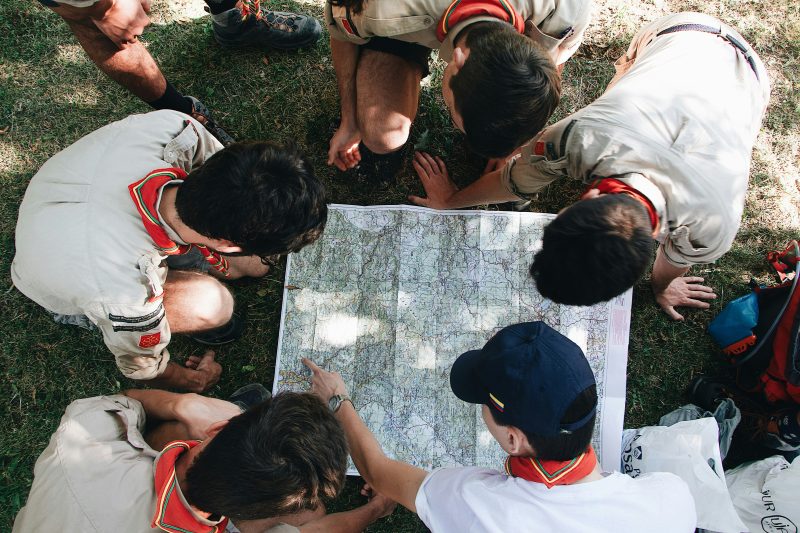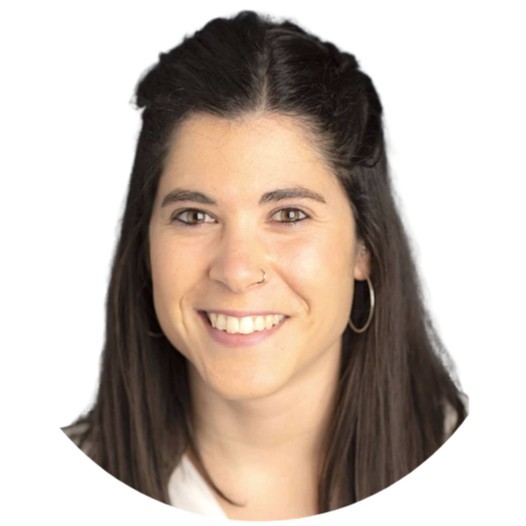
Not Your Classic Academic Role: The Career Path of Laura Sardon Puig
As a child, Laura Sardon Puig enjoyed organizing summer camps. Many years later, when thinking about her future career path, she realized that she wanted to again experience this childhood feeling. Now, she is thriving in her role as an event coordinator and a communication officer at KI, organizing a wide range of events and communicating them to various audiences.
I am meeting Laura on a busy Monday morning in the Biomedicum building at Karolinska Institutet (KI). Laura works as a coordinator for StratNeuro, a research platform at KI that strengthens and promotes brain research, and as a communications officer for NeurotechEU, an alliance of European universities that fosters knowledge exchange within the scientific community. Her work involves organizing a wide range of events—including workshops, seminars, and outreach activities—and communicating these initiatives to both researchers and the general public.

“I am the one behind all the practical tasks, from booking the seminar room and ordering fika to promoting our events through newsletters and social media platforms,” Laura says.
She enjoyed organizing events from an early age. “I was a Boy Scouts leader”, she recalls. “When I started thinking about what I truly wanted to do, I realized I want to return to that – organizing summer camps,” she laughs.
But this was not easy to figure out. Laura completed her PhD at KI researching cellular metabolism, and by the end of it, she knew that continuing in academia in the traditional sense was not an option. “The competitive environment was not my thing. But I still wanted to continue doing research, so I went to work for a small startup company, where I continued working in the lab. However, it was not fulfilling for me. I realized that, while I like the idea of research, I just don’t enjoy being in the lab myself.”
This realization was quite daunting at first. “I had a hard time accepting this, because in academia, you see a lot of people who are very passionate about their research. I was asking myself – why don’t I feel like this?” she confesses.
Laura then took career coaching sessions to help her identify her interests. Asking herself, “What would be a great day at work?” was a very useful tool for her. “I realized that I really enjoy organising meetings, as well as communicating and coordinating people. But when I started to look for a new job, it was tough. You don’t really know what job titles you should look for – I identified my interests, but what are the positions that would interest me?”
She started volunteering to organize different events within her current company, such as retreats and communication sessions for the employees, and she started managing the company’s LinkedIn account. She also volunteered with the communications team of TEDx Stockholm, wrote for KI Bloggers, and took online communication courses. During this period, she networked a lot, reaching out on LinkedIn to people who had transitioned to different jobs after their PhD, asking about the transition process and their current roles. “People were actually quite responsive to these invitations,” she remembers. “Lots of them were willing to meet for a chat.”
Eventually, networking proved crucial for landing her current job. She initially applied for a different position at KI, and although the interview went great, she could not take the role due to personal reasons. “Even though I didn’t get the job then, this interview actually gave me a job later”, Laura points out. “The interviewer recommended me for a StratNeuro job opening, and they reached out to invite me to apply.”
The rest is history. “If you get a recommendation, it is much easier for everyone,” Laura states. “I always say that networking is very important in a job search.” Now, she truly enjoys her job, as she has plenty of opportunities to organize events and meet people from all over the world. While it can be tiring sometimes, it is very fulfilling.
When asked whether having a PhD helps her in her current role, she responds positively. “There is a long list of transferable skills one acquires during the PhD – you don’t realize it while doing it because everyone around you is on a similar level. Only later do you start realizing that many people do not possess these skills you take for granted.”
For more information about Laura’s work, visit: The Strategic Research Area Neuroscience (StratNeuro) and NeurotechEU – the European University of Brain and Technology
You can also check out one of Laura’s blog posts: Advice To My Younger Me – Why you should be listening to this podcast – Researcher blogs


0 comments